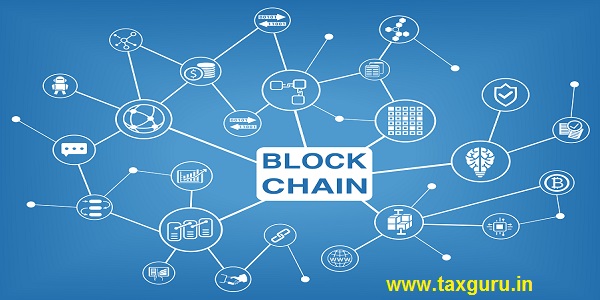Blockchain-
A blockchain is digital ledger created to capture transaction conducted among various parties in network. It’s a peer to peer network which included all transaction since its creation. Blockchain is managed by the network of nodes and all participants use the shared database are “nodes” connected to the blockchain. Like its name implies, blockchain structures its data into block that are chain together. All new information that follows freshly added block is compiled into a newly formed block that will then also be added to existing chain. It has been implemented in decentralized nature. Each block is time stamped and become part of its timeline.
Impact on auditing and accounting-
- As more and more large scale companies contemplating to employ the blockchain technology in their organization to manage the day to day operations which will revolutionizes and automate the entire operations of the company. So, accounting and auditing would also impact to the larger extent. As information will be collected by the blockchain enhanced system so accounting will also be done under the same environment and auditor also need to possess the working knowledge of the blockchain.
- Blockchain has potential to impact all process of accounting i.e. record keeping process, inventory management, fixed asset management etc. So, Auditor need to possess skill set to obtain sufficient and appropriate evidence from the blockchain enhance system. There would be greater standardization and transparency in reporting and accounting which could enable more efficient data extraction and analysis. Auditor needs to change the approach from testing of transaction to testing of control.
- An audit involves an assessment that recorded transaction are supported by evidence that is relevant, reliable, objective, accurate and verifiable. However, auditor may or may not be able to determine the reliability of the system by solely evaluating information on the blockchain platform as transaction stored in blockchain enable system may or may not provide sufficient appropriate audit evidence related to the nature of transaction.
- Transaction in blockchain may still be:
- Unauthorized, Fraudulent, or illegal
- Executed between related parties
- Incorrectly classified in the financial statements.
Things are unfolding gradually in the blockchain technology, so it is not easy to comprehend the detailed impact on auditing and accounting profession as of now. Rate of adoption of blockchain technology is expected to increase. So, the auditor need to monitor the development and implementation of the blockchain and assess the potential impact on organization data structure and operations. So, to cope up with the change in technological environment auditor will need to conversant with the basics of blockchain technology.
Potential role for auditors in the blockchain ecosystem:
1. Auditor of smart contract: To automate the business processes smart contracts may be embedded in processes to automate the business function. So, auditor need to verify that the smart contract are implemented correctly by evaluating the source of information and whether the information captured in smart contracts is reliable or not.
2. Audit of Blockchain platform: For the success of any platform its reliability and efficiency of the system need to be assess diligently. Many robust systems failed because of flawed implementation and it would result in loss to the organization.
3. Audit of financial statement under blockchain ecosystem: Auditor require to possess the requisite skill sets to carry out the independent evaluation of the financial statement prepared under blockchain ecosystem. Auditors have to report whether the information generating by the blockchain enabled system is reliable and free from error.
All in all, we can say that blockchain is here to stay and application of blockchain will continue to increase substantially. It will change the way accounting bookkeeping process and audit procedures.
Despite the fact that blockchain technology have complexities, but it may offer an opportunity to streamline financial reporting and audit process. Audit assurance will help to increase the trust of the stakeholders which is crucial for the effective functioning of the system. Auditor should apprise the benefits of blockchain technology and how it could be used in a meaningful way to bring maximum output from its usage to the organization. In the future we can witness the advent of the blockchain technology spreading over different industries. So, auditor need to possess requisite knowledge about the blockchain to carry out the audit under blockchain technology.






